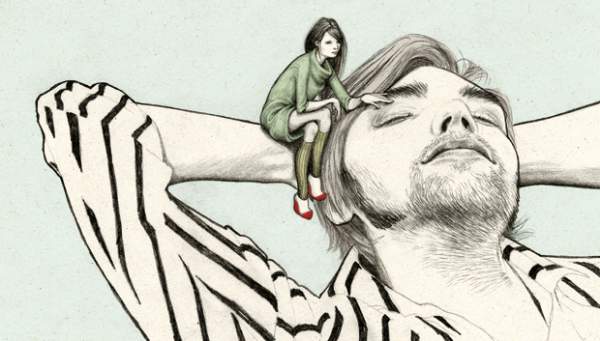wanderlust
The Difference Between Sympathy And Empathy And How To Skillfully Apply Both In Messy Situations

Illustration by Denise Van Leeuwen
The oft-discussed difference between sympathy and empathy is quite straightforward: while sympathy is the expression of socially acceptable sentiments in relation to a difficult situation another person may find themselves in, empathy is the ability to put oneself in the other person’s shoes and feel what they are feeling, or at least try to get an idea of what they are feeling.
I would argue however, that sympathy is not to be completely devalued and rejected. I confess that I used to do just that. I used to believe that all sympathy is fake, and declare that I’d rather hear a harsh truth than a beautiful lie. Now, I’m not so sure. There are people who, for some reason or another, are very quick and eager to offend, and believe that they are uttering the truth just because they express themselves using harsh words. In fact, many times they don’t even need a reason and just do it for the hell of it. Experiencing others’ lack of diplomacy and tact can truly make someone realize that diplomacy and tact are, in fact, important and there’s a good reason why they have a place in this world.
In my neck of the woods, this is referred to as “leaving room for hello.” That is to say, even if you don’t like someone and strongly prefer to avoid them, you can still say “hello” when you see them, before you excuse yourself and walk away – instead of, you know, going for their throat. So, while there are many cases when sympathy is, indeed, fake and even out of place and condescending, I’ve come to believe that it is preferable to open enmity and gratuitous rage.

Illustration by Denise Van Leeuwen
This being said, empathy will always be the next level, because empathy is what makes genuine communication possible. While required in order to, so to speak, keep the peace, sympathy can be learned mechanically and there are situations in which it is of no real help whatsoever.
Case in point – offering condolences. Many of us who haven’t experienced loss and mourning first-hand do not know what to say to a person who has lost a loved one, and this is why we end up saying commonplace things that only emphasize the fact that we have not been in the same situation. This is when sympathy not only does not help at all, but deepens the rift between ourselves and the other. What to say to someone in mourning? What to say to someone who has survived an assault or a terrible accident? The truth is, these situations do not require saying. They require doing – showing someone, with concrete actions, that they can rely on you.
Empathy can be summarized as “I have been through this” or “I am aware that I, or anyone else, can be in the situation you are in right now” and “I want you to know that I am here, and if there’s anything I can do, you only have to say the word.” This, however, is only the beginning. Actions have to back up these words.
At the same time, there are things that we have all been through. Everyday moments of insecurity and doubt, or feelings of inadequacy, do not even begin to compare with life’s great tragedies, but they still exist, and we all know that we could use a little encouragement in such situations. In Steven Chbosky’s novel “The Perks of Being a Wallflower,” the narrator states, “I think that if I ever have kids, and they are upset, I won’t tell them that people are starving in China or anything like that because it wouldn’t change the fact that they were upset. And even if somebody else has it much worse, that doesn’t really change the fact that you have what you have.” This is also empathy.

Illustration by Denise Van Leeuwen
For an additional example, here’s a “cool story, bro” – I’ve been teased over liking the band My Chemical Romance (still do, and there’s no way you can convince me that “The Black Parade” isn’t a brilliant album). Well, besides the music, another reason why I have respect for them is having heard frontman Gerard Way say that everyone in the band is “messed up” and therefore, “[…] it’s okay to be messed up, there’s other people just like you, and if we stick together, we’ll get through this.” I think it’s wonderful that messages like this exist out there, in the middle of all the negativity. This, too, is empathy. The people who stand for it will find a way to make their voices heard. We all have resources of strength that we may not even be aware of. We are not alone. We can do this.
—
Anca Rotar is a Romanian-born writer, over-thinker and caffeine addict. She is the author of two books, Hidden Animals and Before It Sets You Free, both available from Amazon.com. Among her interests, which she finds it hard to shut up about, she counts fashion, yoga, city breaks and deadpan sarcasm. She is also currently studying Japanese, so wish her luck. You can sample bits of Anca’s creative writing here.
Be the first to write a comment.
Your feedback
